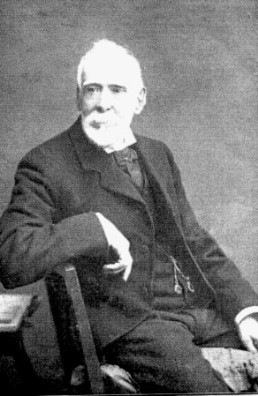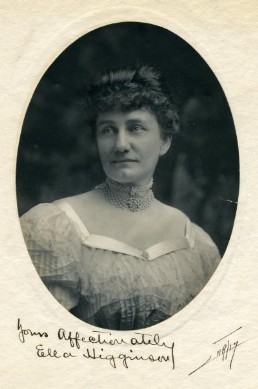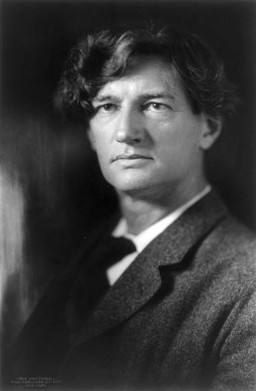Misc - Sligo Poets
Main menu:
- Home
-
1912
- 1912
- Sligo Poetry 1912
-
1913
- 1913
- Sligo Poetry 1913
-
1914
- 1914
- Sligo Poetry 1914
-
1915
- 1915
-
Sligo Poetry 1915
- Sligo Newspaper Poems
- Sligo Champion
- Sligo Independent
- Sligo Nationalist
-
1916
- 1916
-
Sligo Poetry 1916
- Sligo Newspaper Poems 1916
- Sligo Champion
- Sligo Nationalist
- Sligo Independent
- The Poets
- Bibliography
- The Author

These six poems are a fascinating miscellany from various authors, places and times. Most were unattributed in the newspaper though the authorship of two of those can be ascertained.
"When the Birds Go North Again" was written by a well-
"The Course of Time" is a translation of part of "Coplas a la muerte de su padre" (Verses on the death of Don Rodrigo Manrique, his Father), by Jorge Manrique (c. 1440–1479), a Castilian poet. This translation seems to have been first published in an article entitled "Early Narrative and Lyrical Poetry of Spain" in the Edinburgh Review in January 1824. No translater is credited there. The American poet, Henry Wadsworth Longfellow, published a translation of Manrique's poem but this is not from his translation.
These verses were often reprinted in the early part of the nineteenth century, usually with some reference to the Edinburgh Review. They appeared in The Museum of Foreign Literature and Science, Volume 4, 1824, published in Philadelphia, The Religious Monitor, and Evangelical Repository 1825 and in a Supplement to the Connecticut Courant 27 May, 1843. The poem was also published in "Heavenly Hymns for Heavy Hearts" in 1864 by the Presbyterian Board of Publication, Philadelphia.
"What the Kettle Sings" was also published in the Pittston Gazette, Pennsylvania, on Friday, November 14, 1913 and in the Fayetteville Observer on Wednesday March 11, 1914. In both of these it is credited to "Margaret Vandergrift in St Nicholas". Margaret Thomson Janvier (1844-
The "B.C." to whom "Winter Twilight" is attributed is Bliss Carman (1861-
Timothy Daniel Sullivan (1827–1914) was an Irish nationalist, journalist, politician and poet whose most famous composition was "God Save Ireland". He was born at Bantry, County Cork. He represented a number of constituencies in the House of Commons as an Irish Parliamentary Party MP until he retired in 1900. He was Lord Mayor of Dublin in 1886 and 1887. He owned and edited a number of publications and wrote a large body of nationalist poems and songs of which "In the Ould Countree" is a good example.
Below left to right: T.D. Sullivan, Ella Higginson, Bliss Carman. Images from Washington State Library Photograph Collection, 1851-



Sligo Nationalist
29 January 1916
Only A Memory.
Under a yew tree’s guarding height
Silvered with rays of fading light,
A silent spot of gentle green
Rests there beside a crystal stream.
Sweet plaintive breezes croon that way,
Where glistening tears of woodland fay
In flow’ry chalice so fair
Linger to kiss the morning air.
The breezes blow the starry dew
To bathe this spot beneath the yew.
For here lies youth in dreamless sleep
A love we did our best to keep.
Only a love in earth’s chill womb,
Only a heart cold in its tomb,
Only at rest neath’ flowers white,
Only forever lost to sight.
But mem’ry shall ever hover,
Outstretched wings her jealous cover
Of that fresh green from peering eyes,
For underneath love sleeping lies.
Hush! the moan of wind and flowers,
Sorrow’s tears and twilight’s shower’s.
Stealing heartsighs down to the sod
Bring me nearer to thee and God.
Sligo Nationalist
28 October 1916
The Course of Time.
O, let the soul its slumber break,
Arouse its senses and awake,
To see how soon
Life with its glories glides away
And the stern footsteps of decay
Come stealing on.
How pleasure, like the passing wind,
Blows by, and leaves us naught behind
But grief at last ;
How still our present happiness
Seems, to the wayward fancy less
Than what is past.
And while we eye the rolling tide,
Down which the flying minutes glide
Away so fast;
Let us the present hour employ,
And deem each dream of future joy
Already past.
Let no vain hope deceive the mind—
No happier lot let us hope to find
To-
Our golden dreams of yore were bright;
Let them the present shall delight—
Our lives, like hasting streams must be,
That into one engulphing sea
Are doomed to fall;
The sea of Death whose waves roll on
O’er king and kingdom, crown and throne,
And swallow all.
Alike the river’s lordly tide,
Alike the humble riv’lets glide
To that sad wave,
Death levels prosperity and pride,
And rich and poor sleep side by side
Within the grave.
Sligo Nationalist
16 December 1916
WINTER TWILIGHT.
Along the wintry skyline,
Crowning the rocky crest,
Stands the bare screen of twined trees
Against the saffron west—
Its grey and purple network
Of branching tracery
Outspread upon the lucent air,
Like weed within the sea.
The scarlet robe of autumn
Renounced and put away,
The mystic Earth is fairer still,—
A Puritan in grey.
The spirit of the winter,
How tender, how austere!
Yet all the ardour of the spring
And summer’s dream are here.
Fear not, O timid lover,
The touch of frost and rime!
This is the virtue that sustained
The roses in their prime.
The anthem of the north wind
Shall hallow thy despair,
The benediction of the snow
Be answer to thy prayer.
And now the star of evening
That is the pilgrim’s sign
Is lighted in the primrose dusk—
A lamp before a shrine.
Peace fills the mighty minster,
Tranquil and grey and old,
And all the chancel of the west
Is bright with paling gold.
A little wind goes sifting
Along the meadow floor,
Like steps of lovely penitents
Who sighingly adore.
Then falls the twilight curtain,
And fades the eerie light,
And frost and silence turn the keys
In the great doors of night.
B.C.
Sligo Nationalist
19 February 1916
When the Birds Go North Again.
Oh, every year hath its winter,
And every year hath its rain
But a day is always coming
When the birds go North again.
When new leaves swell in the forest,
And grass springs green on the plain,
And the alder's veins turn crimson
And the birds go North again.
Oh, every heart hath its sorrow,
And every heart hath its pain-
But a day is always coming
When the birds go North again.
’Tis the sweetest thing to remember
If courage be on the wane,
When the cold dark days are over
Why, the birds go North again.
Sligo Nationalist
11 November 1916
What the Kettle Sings.
I love to hear the kettle sing
In winter when the wind is blowing;
It somehow makes me think of Spring,
Though it is snowing.
A little sort of chirp comes first,
And then a gentle drowsy humming,
That seems to say, “We’re through the worst,
Yes, spring is coming!”
I know quite well, outside the room,
What isn’t snowy must be icy,
And yet I dream of fruit and bloom
In islands spicy—
And little running, laughing streams,
And dear green woods with vines and mosses,
And sunny places full of gleams,
When the wind tosses.
The leafy branches all about
Make just another sort of singing:
And little flurry things come out,
Leaping and springing.
And always, when I get to this,
And feel a sort of pleasant creepy,
My Mother wakes me with a kiss,
And “Oh, how sleepy!”
Sligo Nationalist
28 October 1916
IN THE OULD COUNTREE.
Oh, my love is with the land,
So fair, so bright, so grand,
Where the people are so kindly, and so true;
Where hands and hearts are warm,
In sunshine and in storm,
And the speech is soft and sweet as summer dew;
Where ’tis “deelish,” and “machree,”
What more loving words could be
And ’tis “gragal” and “mavourneen” and “asthore;”
And the hearty “bannacht lath”
Prays a blessing on your path,
And they wish you luck and happiness “goleor.”
CHORUS:
In the Oul Countree!
In the Oul Countree!
Where ’tis “deelish,” and “machree,”
What more loving words could be
And tis “gragal” and “mavourneen” and “asthore;”
And the hearty “bannacht lath” prays a blessing on your path,
In the Oul Countree far away!
There is pity for the poor,
There is helping ever sure,
For the “innocent,” the cripple and the blind;
There are cheering words and free,
For the white-
And the poor old “widdy” long since left behind;
And ’tis well you look today,
You’ll be smiling on a sweetheart soon again;”
And tis “Phaurig Dall, avick,
Sure, you hardly need the stick,
With the knowledge and the light that’s in your brain.”
Then round the fire at night,
What a scene of pure delight,
With the senachees, the colleens, and the boys!
As they tell old Ireland’s wrongs,
And they sing young Ireland’s songs,
And are thrilled by Erin’s sorrows and her joys;
And ’tis God reward old Dan,
Ay, and every other man
Who strove to make dear Graniu free and great;
And ’tis “Oh, boys, for a chance,
From America or France,
Such as came and passed away in Ninety Eight.”
Then the fiddler tunes his strings,
And they move away the things,
And they make what space they can upon the floor;
And at it, heel and toe,
The merry dancers go,
And the ceol is heard far out beyond the door;
And ’tis “Bravo, purty Kate!
Faith, your steps are light and nate,”
And ’tis Well done, Paddy! you’re your father’s son!”
But, boys, alas for me,
’Tis amongst you I should be,
But my singing and my dancing days are done.
T. D. SULLIVAN.